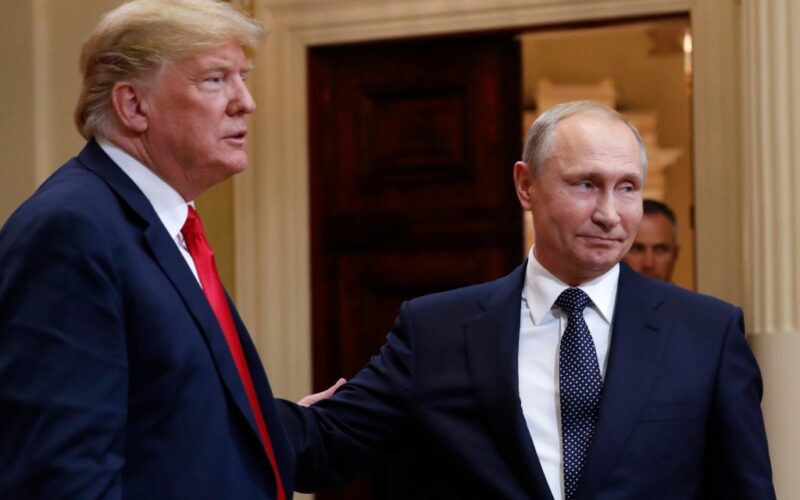Tomorrow, when Donald Trump hosts Russian despot Vladimir Putin at a U.S. military base in Anchorage for their one-on-one Alaska meeting, it will be one more in a series of talks to end Putin’s horrific invasion of Ukraine, long after Trump promised to stop the war in one day.
The summit will take place with exactly one of the belligerents in this conflict, notably the one who started it in the first place, as Ukrainian President Volodymyr Zelenskyy was not invited to the discussion where his country’s future will be discussed.
Ukraine, not at the table, can’t be on the table, as Putin would like to carve out big chunks of his democratic neighbor for absorption into Mother Russia.
Trump’s musing that peace might involve some “swapping, changes in land” is worrisome, but his agreeing to confer in advance with our NATO allies is heartening. Unlike Trump, they aren’t charmed by the Kremlin’s tough guy.
If Putin succeeds in keeping Ukrainian territory, we hope the U.S. president can understand that it won’t take particularly long for Putin to act on the lesson that he can take other countries’ land by force, even if he does not ultimately win a total victory and even if all global powers are allayed against him.
We have supported Ukraine’s cause for its liberty, independence and freedom because it is the correct moral one, sure, but this is also a matter of practicality. Putin has been very clear that he envisions some kind of righteous return to an era when Russia was an imperial power, and beyond all of his self-enrichment and quest to permanently secure and maintain his own power and position atop Russia, he really does have an ideological commitment to seeing this project through.
Unless Trump wants to find himself mediating yet more conflicts on Russia’s periphery, he’d do well to keep in mind that Putin views this very much as a test case.
If Trump really is as business-minded as he often claims, then he surely must understand that it is not a desirable thing to have to write off a big stake. At this stage, the United States has spent plenty for Ukraine’s sovereignty — often over the objections of Trump himself, but the expenditures have been made.
If he’s so gung-ho about protecting the investments of U.S. taxpayers, then he should want to protect those already made and understand that you must engage in any negotiation from a position of strength, with clear objectives and nonnegotiables.
Protecting Ukrainians’ self-determination and dissuading what is sure to be additional international Russian aggression in the event that Putin feels like his gambit ultimately worked should be bedrock principles in these talks, even if Zelenskyy won’t be in attendance.
Headline-grabbing promises and assurances of simple solutions have worked well for Trump in domestic political campaigning, but defaulting to the types of blustery deal-making that Trump has done his whole life is simply not going to work for extremely sensitive international relations.
No more gimmicky deadlines and empty bravado. Trump should come with the recognition that these discussions cannot be settled over a lunch and instead require careful consideration and dialogue involving trained experts and diplomatic personnel. That is not the slapdash Trump way, and for good reason. A lot is resting on these talks, for Ukrainians, for Russians and for the whole world.








